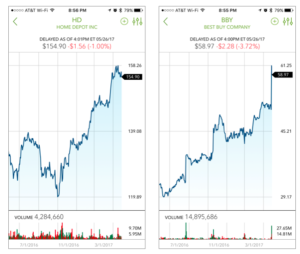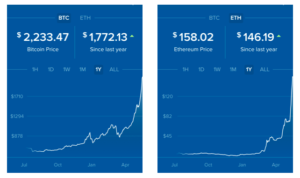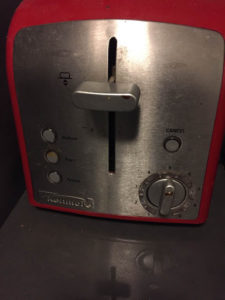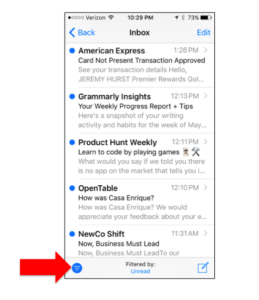Business & Money
In recent years we’ve heard a lot about “the death of retail.” In fact, from 2006 to 2016, 5 of the big retail chains (Sears, JCPenney, Nordstrom, Kohl’s, and Macy’s) lost a combined $75B in market capitalization. Amazon went from $17B to $350B in market value during the same period. So there is some truth to the phrase.
However, Amazon may be opening 3,000 cashier-less stores by 2021.
Apple is investing heavily in their retail experience.
All of the top e-commerce brands (Bonobos, Indochino, All Birds, Warby Parker, etc) have moved or are moving into physical retail.
You can also look at stock charts for Nike, Lululemon, Home Depot, and Walmart and see a strong growth story.
So it’s not fair to make a sweeping generalization about a category and leave it at that.
What is clear is that you need to do something unique and compelling in retail if it is to be a growth driver for your business.
Human Progress
Many of you might remember reading George Orwell’s 1984 and Aldous Huxley’s Brave New World while growing up. Both novels described a dystopian version of the future the served as a critique regarding the social, political, and technological trends of the day. That said, I’m more interested in the differences between the two.
Orwell described a world that was caught up in perpetual war and ruled by an authoritarian state that employed tools of mass surveillance and propaganda to control every thought and action of a reluctantly servile populace.
Huxley’s depiction, by contrast, described a “willingly” servile population. I say “willingly” in quotes because people were actually mass-produced via in vitro fertilization and genetic modification into a predefined caste system. Further, they were constantly under the influence of Pavlovian-style conditioning and a powerful narcotic that rendered them blissfully unaware of the true state of the world.
Perhaps I can draw a modern analogy to better describe these two scenarios.
You might say that Orwell’s dystopia looks something like North Korea. Overt mass surveillance. Overt propaganda. People living under a state of fear and many risking their lives to escape. (I’ve never been to North Korea or spoken to anyone that lives there, so we’re stuck with my imagination)
And what place, you ask, might represent Huxley’s version? Dare I say the United States? Think about it for a second. You might say that Facebook and Google offer us “free” services in exchange for the intimate details of our lives and the right to control what we see and consume. You might say that advertising, media, and industry have created a culture of rabid overconsumption as a distraction from the true nature of reality. You might say that we live in a state of willing servitude where the services and products that we love are actually are captors.
So I guess the question is: which is preferable, ignorance or awareness of captivity?
Philosophy
I read a quote a few weeks ago that went as follows (not sure exactly where I saw it):
“The opposite of a simple truth is a simple lie. The opposite of a profound truth, is another profound truth.”
It has been on my mind since reading it.
If I ask you where you were at noon on Monday, November 5th, you can tell me the truth about your whereabouts. Or you could lie. And I could subsequently check what you said with other people, or perhaps look at your Uber ride history for confirmation. In other words, your location at a specific time on a specific date is a simple matter of fact.
By contrast, if I ask you about what it means to live a good life, what happens after death, or whether you believe in a higher power, these are questions of an altogether different sort. And your answers would reveal profound truths about your belief system.
But those profound truths do not have profound lies as their corollary. Instead, other people would provide different answers that they believed to be profoundly true.
So the question is, how do you reconcile such a difference in profound truths?
I’m not sure what the answer is, but I would say that you have to do so respectfully and compassionately, and that a genuine sense of curiosity serves well.
My Latest Discovery
A few friends gave me nice bottles of whiskey and scotch for my birthday (thank you 🙏). So one evening during this past week, I decided to do a tasting flight. I poured a half shot of Hibiki Japanese Harmony, a half shot of Auchentoshan 12-year old single malt scotch, and a half shot of Oban 14-year old single malt scotch, each with a couple drops of water added.
All were delicious, but slightly different.
To my unsophisticated whiskey palet, the Habiki was the smoothest and most gentle, while still maintaining a nice blend of flavors and aromas (it’s a blend of many different whiskeys).
The Oban packed a bit more bite, but also seemed to have hints of fruit and spice.
The Auchentoshan was my favorite. It was the most pungent in my opinion, but with that came more complexity and richness. There also seemed to be a hint of bourbon which we all know I love.
But, to be honest, you can’t go wrong with any of the three.




